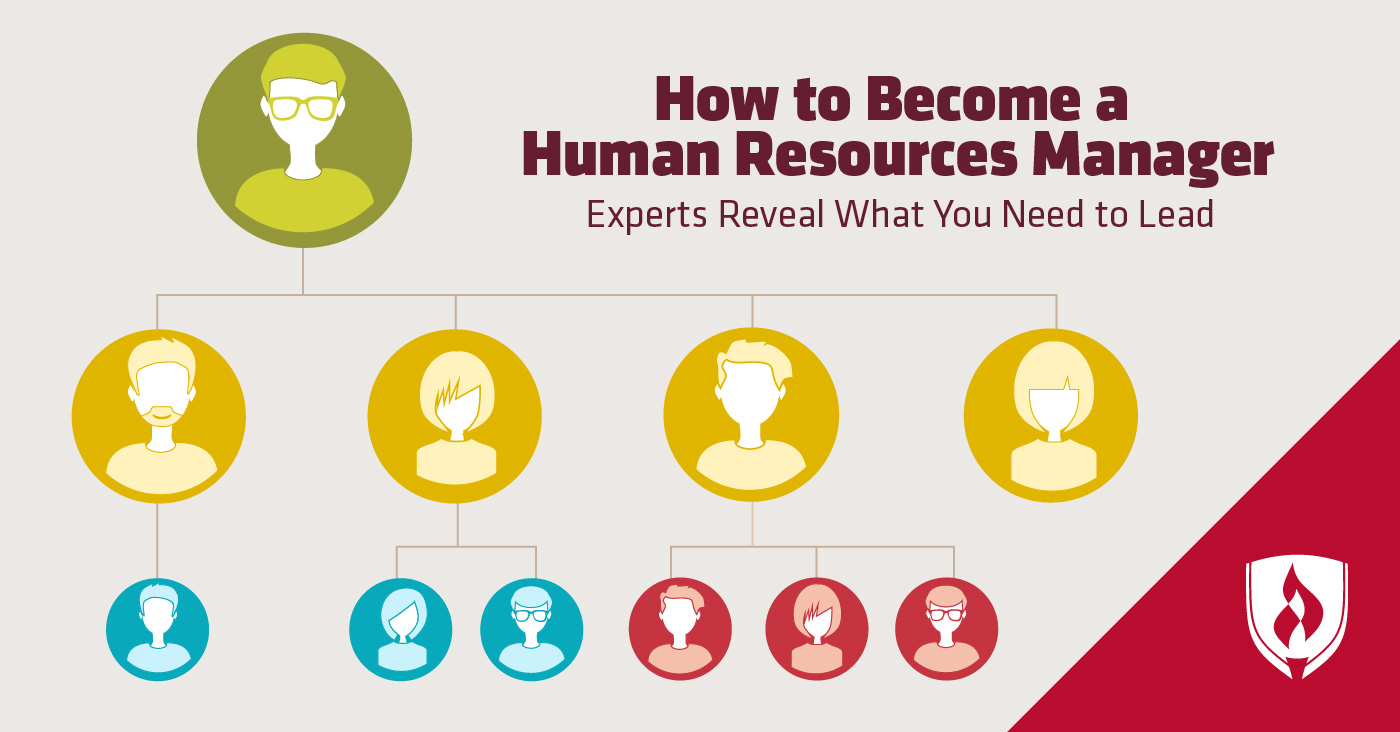
How to Become a HR Management: Your Ultimate Guide
Are you eager to step into a career that puts you at the heart of an organization? Becoming an HR manager might be your perfect path.
As someone who thrives on connecting with people and understanding what makes them tick, you have the potential to shape a positive workplace culture and drive a company’s success. Imagine having the ability to solve complex problems, nurture talent, and implement policies that make a real difference.
It’s not just a job; it’s a role where you can truly influence the future of work. If you’re ready to unlock the secrets of how to become a successful HR manager, dive in and discover the steps that can turn your passion into a rewarding career.
Career Pathways In Hr Management
Embarking on a career in HR management offers diverse pathways. HR professionals play a crucial role in shaping company culture. They ensure employee satisfaction and compliance with labor laws. This field provides various opportunities for growth and specialization.
Entry-level Roles
Entry-level positions in HR are foundational. Many start as HR assistants or coordinators. These roles involve administrative tasks. They include maintaining employee records and assisting with recruitment. Gaining experience in these roles builds essential skills. These skills include communication and organization.
Mid-level Opportunities
Mid-level HR positions offer more responsibility. Roles like HR generalist or specialist are common. Professionals handle employee relations and benefits administration. They also manage training and development programs. This stage often requires strategic thinking. It’s a chance to implement HR policies and improve workplace efficiency.
Senior Hr Positions
Senior HR roles include HR managers and directors. These positions involve leadership and decision-making. Senior professionals design HR strategies aligned with company goals. They oversee entire HR departments. They handle complex issues like mergers or restructuring. Experience and advanced certifications boost credibility in these roles.

Essential Skills For Hr Managers
Becoming an HR manager is more than just overseeing employee records and conducting interviews. It requires a specific set of skills that can make or break your success in the role. Whether you’re aiming for a promotion or you’re just starting in the field, understanding these essential skills is crucial. Let’s dive into what you need to excel in HR management.
Communication Skills
Effective communication is the backbone of HR management. You need to convey policies clearly and handle sensitive issues with tact. Imagine sitting down with an employee who’s facing challenges at work; your words can either motivate or demoralize them.
Listening is just as important as speaking. You should be able to understand employee concerns and relay them accurately to higher management. Consider keeping an open-door policy to encourage staff to share their thoughts freely.
Problem-solving Abilities
HR managers often face unexpected issues. Whether it’s a conflict between employees or a sudden change in company policy, your problem-solving skills are put to the test. Quick thinking and creative solutions are your best allies.
Have you ever turned a potentially disastrous situation into a win-win? Such experiences not only solve immediate problems but also build trust within your team. Being resourceful and adaptable can set you apart from others.
Organizational Skills
HR managers juggle multiple tasks daily. From maintaining employee records to planning training sessions, organizational skills are non-negotiable. Are your files in order, and is your schedule streamlined?
Consider using digital tools to enhance your efficiency. A well-organized HR manager not only boosts their productivity but also enhances the entire department’s workflow. Your ability to keep everything in its place can lead to smoother operations and less stress.
Reflect on your skills and see where you can improve. Are you ready to take the leap into HR management? The journey may be challenging, but with the right skills, you’ll find it incredibly rewarding.
Educational Requirements
Embarking on a career in HR management requires a solid educational foundation. Understanding educational requirements can streamline your path to success. Whether you’re planning to study HR at a university or enhance your skills with certifications, each step is crucial. Let’s delve into the educational avenues that shape a competent HR manager.
Degree Options
A bachelor’s degree in Human Resources or Business Administration is common. This degree provides foundational knowledge of HR principles and practices. Courses cover employment law, organizational behavior, and recruitment techniques. Some universities offer specialized HR management programs. These programs focus more on strategic HR aspects. Pursuing a master’s degree can elevate your expertise. It often leads to senior management roles.
Certifications
HR certifications enhance your credentials and job prospects. The Society for Human Resource Management offers valuable certifications. The SHRM-CP and SHRM-SCP are widely recognized. Another option is the Human Resource Certification Institute. They provide PHR and SPHR certifications. These certifications validate your HR skills and knowledge. Many employers prefer candidates with certified HR qualifications.
Continuous Learning
HR management demands constant learning and adaptation. Participating in workshops and webinars helps stay updated. Reading HR journals and articles enriches your knowledge. Networking with HR professionals offers new insights. Joining professional HR associations can be beneficial. They provide resources and learning opportunities. Embrace a mindset of lifelong learning in your HR career.
Building Experience In Hr
Building experience in HR is crucial for anyone looking to excel in the field. Whether you’re just starting out or seeking to advance your career, gaining hands-on experience can set you apart. Let’s explore some practical ways to build your HR experience.
Internships
Internships can offer invaluable on-the-job learning. Look for positions in companies known for strong HR practices. You’ll get to see the real-world application of HR theories.
During my internship at a tech startup, I learned how dynamic and fast-paced HR can be. It taught me to adapt quickly and handle multiple tasks efficiently. What kind of company would challenge you like that?
Don’t just aim for the big names. Smaller companies might give you broader exposure to different HR functions. Seek out internships that align with your career goals.
Volunteer Opportunities
Volunteering can be an excellent way to build HR skills. Many non-profits need help with recruitment, training, and employee relations. Your contribution can make a significant impact.
Consider volunteering for organizations that resonate with your values. It can be deeply fulfilling while offering you a chance to practice HR skills in a real-world setting. What causes are you passionate about?
Check local community boards or online platforms for opportunities. Even a few hours a week can enhance your resume and skills.
Networking Strategies
Networking can open doors to new opportunities in HR. Attend industry conferences, workshops, or join HR groups online. These spaces are filled with professionals who can offer insights and advice.
Reach out to HR professionals on LinkedIn. Ask questions, share your experiences, and engage in meaningful conversations. You never know who might help you land your next job.
Networking is more than collecting contacts; it’s about building relationships. What value can you offer to your network?
Think about how these strategies can help you grow in HR. Which one will you start with today?
Key Responsibilities Of Hr Managers
HR Managers play a vital role in the workplace. They bridge the gap between employees and management. Their responsibilities impact company culture and employee satisfaction. Understanding these key duties helps in nurturing a productive work environment.
Recruitment And Selection
HR Managers oversee the hiring process. They identify job vacancies and draft job descriptions. They screen resumes and shortlist candidates. Conducting interviews is a crucial part of their role. They also coordinate with departments to find the best talent.
Employee Relations
Maintaining good employee relations is essential. HR Managers address workplace conflicts and mediate disputes. They ensure company policies are followed. Managers also promote a positive work atmosphere. This helps in retaining valuable employees.
Performance Management
HR Managers monitor employee performance. They set performance goals and review progress. Providing feedback is part of their duties. They also conduct performance appraisals. This process helps in identifying training needs.
Trends In Hr Management
Exploring HR management trends involves understanding new technologies and people strategies. Gaining experience and relevant qualifications is crucial for a career in HR management. Effective communication and adaptability are key skills for success in this dynamic field.
In the fast-paced world of HR management, staying ahead of emerging trends is crucial. As workplaces evolve, so do the strategies and tools HR professionals use to manage talent and drive organizational success. Keeping up with these trends can help you become a more effective HR manager. From technology integration to diversity and inclusion, the landscape of HR is rich with opportunities for growth and innovation. Let’s dive into some of the key trends shaping the future of HR management.
Technology Integration
The digital revolution is transforming HR management. Technology is no longer just a support tool but a strategic asset. HR software and systems automate routine tasks, freeing up time for more strategic initiatives. Think about how artificial intelligence can enhance recruitment processes by analyzing data to predict the best fit for your team. Have you considered how cloud-based platforms can streamline communication and collaboration? Embracing technology is essential to improving efficiency and accuracy in HR operations.
Diversity And Inclusion
Diversity and inclusion are more than buzzwords; they are fundamental to building a thriving workplace. A diverse team brings different perspectives, ideas, and strengths. This can lead to innovative solutions and better decision-making. Yet, it’s not just about ticking boxes. True inclusion means every employee feels valued and heard. What steps are you taking to ensure your policies foster an inclusive environment? Perhaps it’s time to review your recruitment strategies and make them more inclusive.
Remote Work Policies
Remote work is no longer a temporary fix; it’s a permanent fixture in many organizations. As an HR manager, adapting to this shift is critical. Remote work policies must be clear, fair, and flexible. How do you ensure productivity while respecting work-life balance? Consider implementing tools that track progress without micromanaging. Have you thought about how to maintain team spirit and company culture when everyone is miles apart? Striking the right balance can be challenging, but with thoughtful policies, remote work can lead to happier, more productive teams. The future of HR management is bright and full of possibilities. Embrace these trends to enhance your skills and drive your organization forward. What changes will you make in your approach to HR management today?
Challenges In Hr Management
HR management involves navigating complex challenges, such as adapting to diverse work environments and ensuring employee satisfaction. Developing strong communication skills and understanding labor laws are crucial for success. Continuous learning about organizational behavior helps manage team dynamics effectively.
Navigating the landscape of HR management is no small feat. As an HR professional, you’re the linchpin that holds an organization together, ensuring that both employees and management work harmoniously. However, the road is fraught with challenges that can test even the most seasoned HR manager. Let’s dive into some of these challenges and explore how you can effectively address them.
Handling Conflicts
Conflicts in the workplace are inevitable. Whether it’s between team members or departments, disagreements can escalate quickly. Your role is to mediate and resolve these issues impartially. Consider a time when two employees clashed over project responsibilities. You might need to facilitate a meeting where both parties express their views and work towards a mutual solution. This not only resolves the immediate issue but also fosters a culture of open communication. How do you ensure that all voices are heard and respected? Developing strong listening skills and maintaining a neutral stance are key strategies.
Adapting To Change
Change is constant in any organization. Whether it’s technological advancements, structural shifts, or new policies, adapting to change is crucial. As an HR manager, you are at the forefront of managing these transitions. Imagine your company is implementing a new software system. It’s your responsibility to ensure that employees are trained and comfortable with this new tool. This involves organizing workshops, providing resources, and being available for questions. Are you prepared to guide your team through change without disruption? Being proactive and communicative can make all the difference.
Legal Compliance
Staying compliant with labor laws and regulations is a non-negotiable aspect of HR management. Failing to do so can result in severe penalties for your organization. Suppose there’s a change in employment law that affects your hiring practices. You need to update policies, inform relevant departments, and ensure that all actions align with the new requirements. Do you have a system in place to keep abreast of legal changes? Regular training and consultations with legal experts can help safeguard your company against compliance issues. Each of these challenges requires a strategic approach and a keen understanding of both human behavior and organizational needs. As an HR manager, your ability to effectively handle conflicts, adapt to change, and ensure legal compliance will set you apart as a leader and a vital asset to your organization.

Advancing Your Hr Career
Advancing your HR career requires strategic steps and dedication. It’s not just about gaining experience; it’s about enhancing your skills, broadening your knowledge, and building networks. Each step forward opens new opportunities and challenges. Let’s explore how you can effectively advance your HR career.
Pursuing Higher Education
Higher education can significantly boost your HR career. Consider enrolling in a relevant degree program. Many HR professionals pursue a master’s in human resources or business administration. These programs provide in-depth knowledge and critical thinking skills. They also help you stay updated with industry trends.
Professional Development
Continuous professional development is key in HR. Attend workshops, seminars, and conferences. They offer new insights and networking opportunities. Engaging in online courses can also be beneficial. Platforms like Coursera and LinkedIn Learning offer courses tailored for HR professionals. These courses help enhance specific skills, like conflict resolution or data analytics.
Mentorship And Coaching
Mentorship and coaching play a crucial role in career growth. Seek mentors within your organization or industry. They can provide guidance and share valuable experiences. Coaching sessions can help identify strengths and areas for improvement. This personalized feedback is invaluable for personal and professional growth.

Frequently Asked Questions
What Qualifications Are Needed For Hr Management?
To become an HR manager, a bachelor’s degree in human resources or a related field is essential. Many professionals pursue a master’s degree for advanced roles. Certifications like SHRM-CP or PHR can enhance credibility. Strong communication and organizational skills are crucial.
Continuous learning through workshops and seminars is also beneficial.
How Long Does It Take To Become An Hr Manager?
Becoming an HR manager typically takes around 5-10 years. This includes obtaining a bachelor’s degree, gaining relevant work experience, and potentially earning a master’s degree or certifications. The timeline varies based on individual career paths and opportunities for advancement within organizations.
What Are The Key Skills For Hr Management?
Effective HR managers possess strong communication, problem-solving, and organizational skills. They should be adept in conflict resolution and have a deep understanding of employment laws. Leadership and strategic thinking are crucial for managing teams and aligning HR practices with organizational goals.
Is Certification Necessary For Hr Management Roles?
Certification is not mandatory but highly recommended for HR management roles. Credentials like SHRM-CP or PHR demonstrate expertise and commitment to the field. They can enhance job prospects and career advancement opportunities. Many employers prefer certified professionals due to their verified knowledge and skills.
Conclusion
Embarking on a HR management career offers rewarding opportunities. Building strong communication skills is crucial. Understanding people and processes enhances your effectiveness. Gaining knowledge in HR laws provides a solid foundation. Networking with professionals opens doors to growth. Continuous learning keeps you updated and competitive.
Exploring certifications can boost your credibility. Practical experience helps you apply theories in real situations. Stay patient and persistent, as success takes time. With dedication and effort, you can thrive in HR management. Remember, each step you take brings you closer to your goal.
Keep striving and learning for a fulfilling career.





